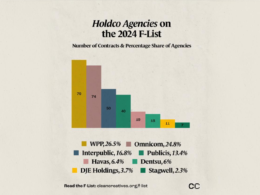Sustainability reporting is becoming an essential practice for companies committed to transparency and long-term value creation. As a media partner for the Asia Sustainability Reporting Award 2024, we interviewed Hortense Hallé-Yang, Head of Sustainability at White Peak, which secured the silver medal for Asia’s Best Sustainability Report (Private Company).
In this interview, we explore the company’s approach to ESG disclosures, the challenges of reporting, and the future of sustainability reporting. White Peak is a Swedish fund manager and developer of residential properties in China.
Why does White Peak publish a sustainability report?
Our sustainability report serves multiple purposes. First and foremost, it is a key resource for our investors, providing them with clear, credible insights into our ESG performance. Internally, it allows us to communicate our sustainability achievements, share best practices across locations, and support different departments—whether in sales, government relations, or stakeholder engagement.
Beyond that, it is useful for anyone who wants to learn more about our sustainable practices. It also supports our application to sustainability ratings, particularly GRESB (Global Real Estate Sustainability Benchmark).
What has been the most challenging aspect of sustainability reporting?
Producing a sustainability report is a complex and time-intensive process, requiring extensive internal collaboration, data collection, and analysis. We strive to go beyond numbers by telling real stories and showcasing tangible examples, making our reports both informative and engaging.
Our latest Sustainability Report, which was recognised by the Asia Sustainability Reporting Awards (ASRA), introduced two significant enhancements: a TCFD-aligned disclosure and an in-depth stakeholder survey on material topics. While both were heavy-lifting undertakings, they significantly enhanced reporting, strengthened governance, improved stakeholder relations, and contributed to continuous progress.
How has disclosing sustainability performance benefited your company?
Transparency in sustainability reporting strengthens our credibility and reinforces trust with key stakeholders. Investors expect it, and potential business partners value it—especially in engagements such as land allocation discussions with local governments, where demonstrating our ESG commitments can make a real difference.
Additionally, our report contributes to sustainability ratings and serves as verifiable evidence in rating assessments. Importantly, disclosing sustainability performance enhances our accountability—tracking key metrics over time demands consistency and continuous progress.
How do you ensure your sustainability report is reliable and credible?
To uphold the integrity of our reporting, we engage an independent third-party verifier—Bureau Veritas. Since 2022, we have strengthened the level of independent assurance. Previously, verification focused on the accuracy of reported information under the ISAE 3000 standard. Now, it also includes verification of our data collection, analysis, and reporting processes in line with the GRI standards.
How do you see sustainability reporting evolving over the next five years?
I believe it will mainly evolve according to mandatory disclosures. Companies will need to provide more detailed, auditable data, especially on Scope 3 emissions, climate and nature-related risks. Stakeholder expectations will push for greater transparency, linking sustainability to financial performance.
Advancements in technology—such as AI and blockchain—will enhance data accuracy and verification processes. Additionally, issues like biodiversity, social impact, and supply chain sustainability will gain prominence. Ultimately, ESG integration into core business strategies will become the norm rather than an option.
What advice would you give to companies looking to improve their sustainability reporting and gain industry recognition?
Align with global standards, ensure strong governance, be transparent, and use data-driven narratives to demonstrate impact. Stakeholder engagement should be a priority, and ESG considerations must be embedded into corporate strategy.
Independent assurance adds credibility while leveraging technology can improve data accuracy. Benchmarking against industry leaders and striving for continuous improvement will also set companies apart. A well-structured, insightful report showcasing measurable progress not only enhances reputation but also increases the likelihood of recognition in sustainability awards.


















